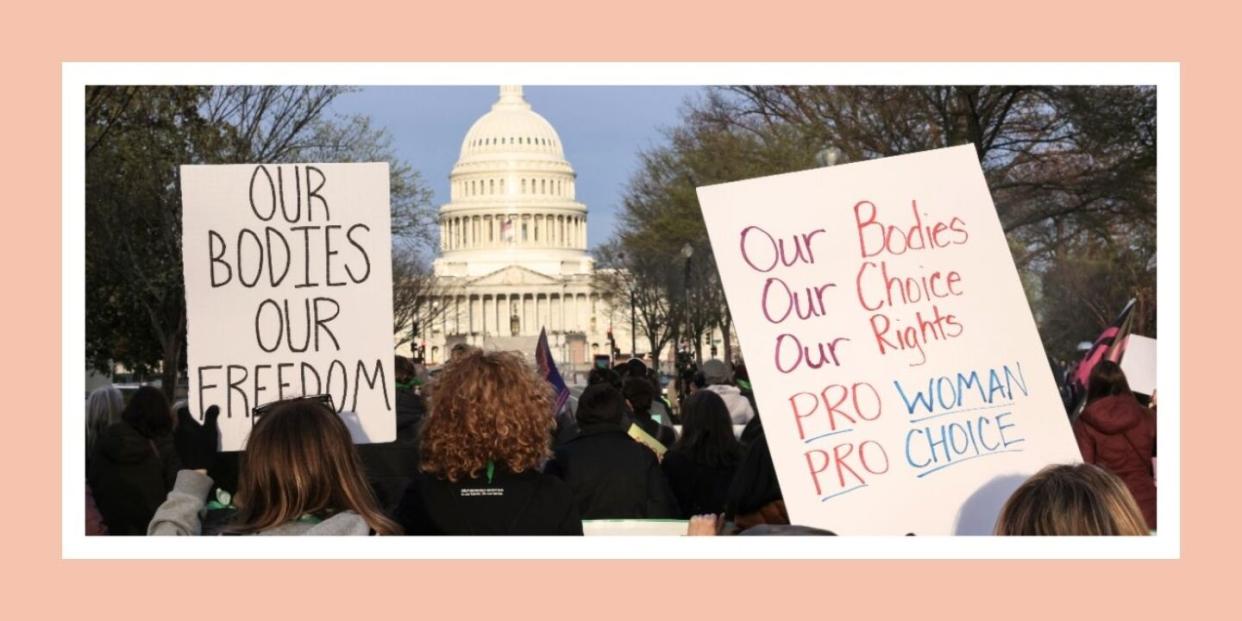Supreme court hears arguments against abortion medication mifepristone—what you need to know

The Supreme Court heard arguments today challenging the Food and Drug Administration’s decisions to increase women’s access to mifepristone, a drug used in medication abortions. The drug was approved by the FDA back in 2000—more than 5 million patients have taken mifepristone since, according to the agency. Studies cited in court filings have shown it is safe and effective.
According to CBS News, in 2016 and 2021, the FDA took steps to make mifepristone more accessible to women—including allowing it to be taken later in pregnancy than initially recommended (up to 10 weeks instead of seven) and delivered through the mail without sans in-person doctor’s visit.
About two-thirds of abortions in the United States were carried out by use of the pill in 2023, according to the Guttmacher Institute, a research group that supports abortion rights. While fourteen states completely ban abortion, including medication abortion, several others prohibit delivering the abortion pill by mail and require patients to see a doctor in person before they can get a prescription for it.
Last year, a Texas-based U.S. district judge and a group of anti-abortion rights doctors and medical associations challenged and invalidated the FDA’s approval of the pill, calling it “unlawful,” but an appeals court decided to include only actions the FDA has taken since 2016—this is at the heart of Tuesday’s Supreme Court hearings. (Because the Supreme Court is not reviewing the FDA’s initial approval of the drug, the medication will still be available in some form.)
The current case, FDA v. Alliance for Hippocratic Medicine, threatens to limit access to mifepristone nationwide—even in states with laws protecting abortion access. The anti-abortion group presenting the argument claim in some cases, women who use have a medication abortion still need surgery afterward to remove remaining tissue. The American College of Obstetrics and Gynecology states that whether a person passes miscarriage tissue on their own or with medication, both experiences are extremely similar. The only certain removal of miscarriage tissue is obtained via a dilation and curettage procedure.
“It’s very clear that young people want more access to abortion care, not less, because abortion gives us control over our futures—where we can live with justice, love freely, express gender and sexuality, and define and create families of our choosing. Mifepristone is safe and effective and backed by over 20 years of scientific and medical evidence,” Kimberly Inez McGuire, Executive Director of URGE: Unite for Reproductive & Gender Equity, says.
“Last month, I had a miscarriage, and in order to safeguard my health, and my ability to have a child in the future if I choose to, I needed to take Misoprostol,” McGuire continues. “These pills, Mife and Miso, are essential, life-saving medications used by people all over the globe. Yet right now inside that building, anti-abortion extremists are arguing a case based on junk science, busybody doctors, and plain old misogyny.”
During today’s hearings, the Supreme Court justices focused most of their questions on whether the doctors who filed the lawsuit against the FDA could prove their case: that the FDA’s rules for mifepristone would cause injury or harm to those who take it.
The current argument over abortion medication comes less than two years after the Supreme Court ruled to overturn Roe v. Wade, granting the constitutional right to an abortion. A study published Monday in the medical journal JAMA found that the number of self-managed abortions obtained using pills grew exponentially during the first six months after the June 2022 ruling.
Last week, The Guttmacher Institute, published data that shows medication abortions accounted for 63% of all abortions that took place within the U.S. healthcare system in 2023, up from 53% in 2020.
The anti-abortion groups, led by the Alliance for Hippocratic Medicine, challenged the FDA’s initial 2000 approval and its more recent changes in 2016 and 2021. They claim the FDA did not have the authority to approve mifepristone for sale and failed to adequately consider the drug’s safety and effectiveness.
“The very existence of this case puts every other FDA-approved medication at risk of being taken off the market or restricted for political reasons,” Alexis McGill Johnson, CEO of Planned Parenthood Federation of America, said in a statement to NBC News.
Amy Hagstrom Miller, CEO of Whole Woman’s Health, an abortion provider with in-person and virtual clinics, says her clinics will continue to offer abortion pills by mail while the court considers the case.
“This cruel and baseless lawsuit is designed to intimidate and confuse Americans,” Miller said. “This case is not about health and safety; it’s about power and control. Here is the truth: medication abortions are safe and effective.”
Leading medical groups such as the American Medical Association have told the Supreme Court that mifepristone is “extremely safe.”
If the Supreme Court decides that there is no legal standing to sue, the case could be dismissed without deciding whether the FDA acted lawfully when it relaxed the requirements for obtaining mifepristone.


